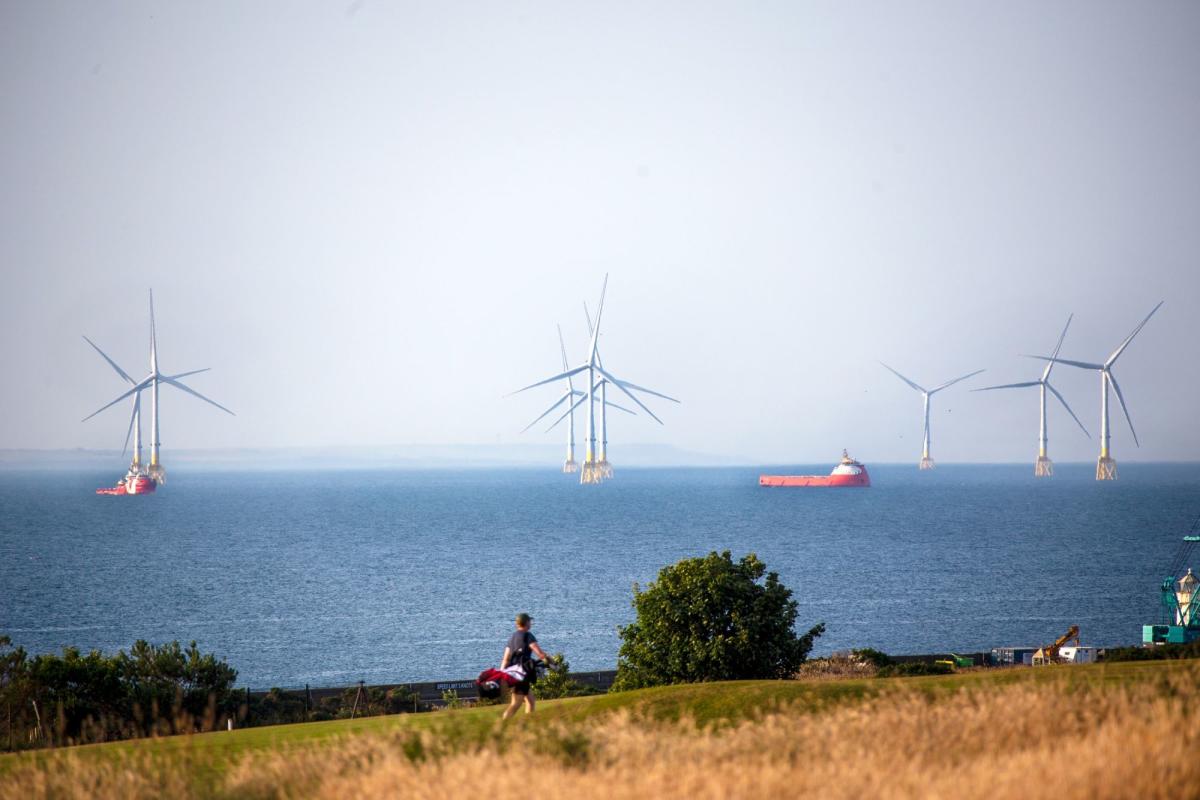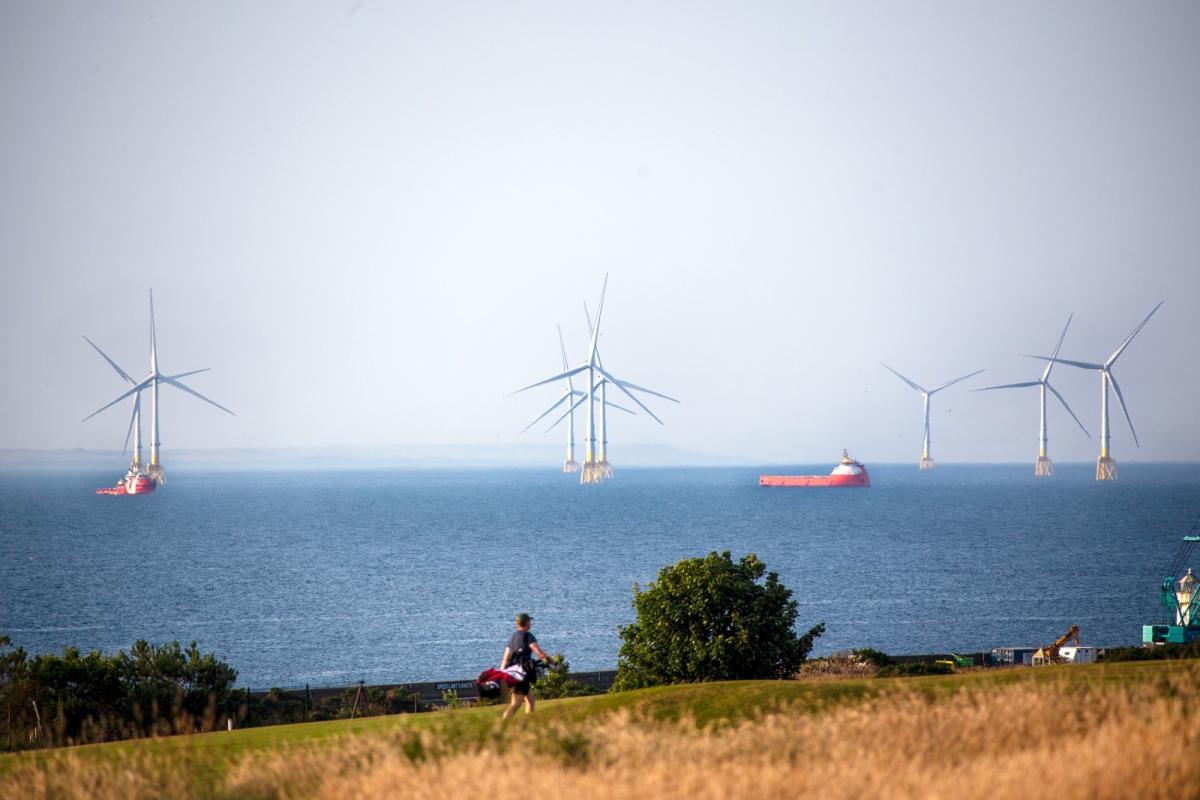
(Bloomberg) — Mark Carney, the former Bank of England Governor and co-chair of the world’s biggest climate finance coalition, urged governments to create frameworks that encourage financial market participants to commit to slashing emissions.
Most Read from Bloomberg
Governments will play a key role in “unlocking” private funds, Carney said during a panel discussion at the COP27 climate summit in Egypt on Wednesday. Policy makers should “align financial regulation with net zero” by making net zero transition plans mandatory, he said.
Carney made the comments on the summit’s Finance Day, which will be a leaner affair than in Scotland last year after a number of prominent chief executives including BlackRock Inc.’s Larry Fink and Citigroup Inc.’s Jane Fraser opted to stay away. That’s as climate finance faces growing hurdles.
An energy crisis and a changing political landscape in the US are making it harder for banks and investors to turn their backs on fossil fuels. Financial firms are also increasingly nervous of the legal ramifications of joining net-zero alliances, with some in the US claiming that such goals are at odds with fiduciary duties. And in some cases, climate-finance alliances have even been likened to cartels.
Read More: Blackstone, Pimco Sidestep Net-Zero Group Even After Concessions
Those legal risks may intensify, depending on the outcome of midterm elections in the US. But there’s also a legal risk involved in making climate promises that firms don’t live up to.
“Firms should be wary of being caught in the riptide of unrealistic ambitions as it may expose them to both litigation and reputational risks if they don’t meet these commitments,” Sonali Siriwardena, partner and global head of ESG at Simmons & Simmons in London.
GFANZ recently allowed members to ignore a UN-backed group, Race to Zero, which had proposed binding restrictions on fossil finance. It also reassured signatories that GFANZ sub-alliances are “only subject to their own governance structures.”
The alliance now numbers roughly 550 members representing about $150 trillion in assets. AllianceBernstein Holding LP, Northern Trust and Capital Group Inc. are among the latest to join the GFANZ sub-group for asset managers, according to a statement on Wednesday.
(GFANZ is co-chaired by former Bank of England Governor Mark Carney and Michael R. Bloomberg, the founder of Bloomberg News parent Bloomberg LP.)
Read More: 10 things to watch at the COP27 summit
Highlights:
-
Click here to read the highlights from talks on Tuesday
-
China delivers blow to climate with new emissions deadline
-
Satellite spots methane cloud near Iran oil and gas facilities
-
Mark Carney sees ‘wall of opportunity’ for energy investors
-
UN panel calls out ‘greenwashers’ and seeks net-zero regulation
-
EU Lawmakers reach deal on climate goals outside carbon market
-
Click here to get read about Bloomberg Green at COP27
Here are the latest developments. All times Egypt.
Malpass Says Developing Countries Are Facing Economic Crisis (10:22 am)
David Malpass, president of the World Bank, said heavy debt burdens combined with inflation and the fallout from climate change are pushing the developing world into an economic crisis.
The World Bank reached $32 billion in climate finance this year, which is a record and was “well above our Glasgow target,” he said. “We want to dramatically increase the number and size of projects that reduce greenhouse gas emissions.”
Georgieva Says Climate Success Depends on Finance ‘Incentives’ (10:15 am)
Kristalina Georgieva, managing director of the International Monetary Fund, said the finance needed to address climate change and the energy transition will not flow without changing the incentives for financiers. And “the best incentive we have to shift from high carbon intensity to low carbon intensity is to price carbon,” she said.
The average price of carbon globally is $5 but to be at the level that “changes investment and consumer behavior” it will have to go up to at least $75 a tonne by 2030, she said.
“Adam Smith, the founder of economics, said it: the butcher and the baker don’t feed you out of the generosity of their hearts, they feed you for self interest,” she said. “So we have to create the self interest for decarbonization.”
Conservative Estimate Puts 2030 Financing Gap at $2.4 Trillion (9:51 am)
There’s a gap in financing of around $2.4 trillion, compared with what’s needed by 2030, and that represents “the most conservative figure,” said Mahmoud Mohieldin, UN Climate Change High-Level Champion for COP27.
Serious debt reduction mechanisms are needed, while multilateral development banks and international finance institutions need to play a greater role in supporting such efforts, he said.
Mohieldin also said he is “very happy to see a chapter of GFANZ established for Africa with serious consideration of being practical and supporting a pipeline of projects.”
Africa Recognizes Need to Pursue Green Growth (8:43 am)
Africa’s common position at the COP27 summit recognizes the need for growth alongside the duty to provide electricity to its 600 million inhabitants who don’t have access to energy, UN Economic Commission for Africa acting Executive Secretary Antonio Pedro said. That energy shortfall is the reason the continent is promoting natural gas as a “transition fuel,” Pedro said in an interview with Bloomberg Television.
Net-Zero Asset Managers Group Says Alliance Has Grown to 291 (8:00 am)
The Net Zero Asset Managers initiative says 86 investors have set initial targets for the proportion of assets that will be managed in line with achieving net zero emissions by 2050 or sooner, with the total number of asset managers committing to net zero rising to 291.
That brings to 169 the total number of managers with such targets, collectively representing over $55 trillion in assets under management, according to a statement by NZAMi on Wednesday. New signatories include Capital Group, Northern Trust and AllianceBernstein.
Climate Change Could Cost Africa Two Thirds of Its GDP Growth (2:01 am)
Global warming could slash Africa’s economic growth by two thirds by the end of the century unless significant investment is made in climate adaptation, a new study shows.
Current climate policies will likely see temperatures exceed the pre-industrial average by 2.7C, curbing African growth rates 20% by 2050 and 64% by 2100, Christian Aid said in a report released Wednesday. Even a 1.5C rise in temperatures would reduce growth rates by 34% by the century’s end, it said.
While Africa is responsible for about 4% of planet-warming emissions, it’s already being hit hard by a changing climate. Devastating cyclones and floods have battered southeast and West Africa this year while the Horn of Africa is in the midst of its worst drought in four decades.
–With assistance from Salma El Wardany, Yousef Gamal El-Din, Paul Richardson, Akshat Rathi and Siobhan Wagner.
Most Read from Bloomberg Businessweek
©2022 Bloomberg L.P.




